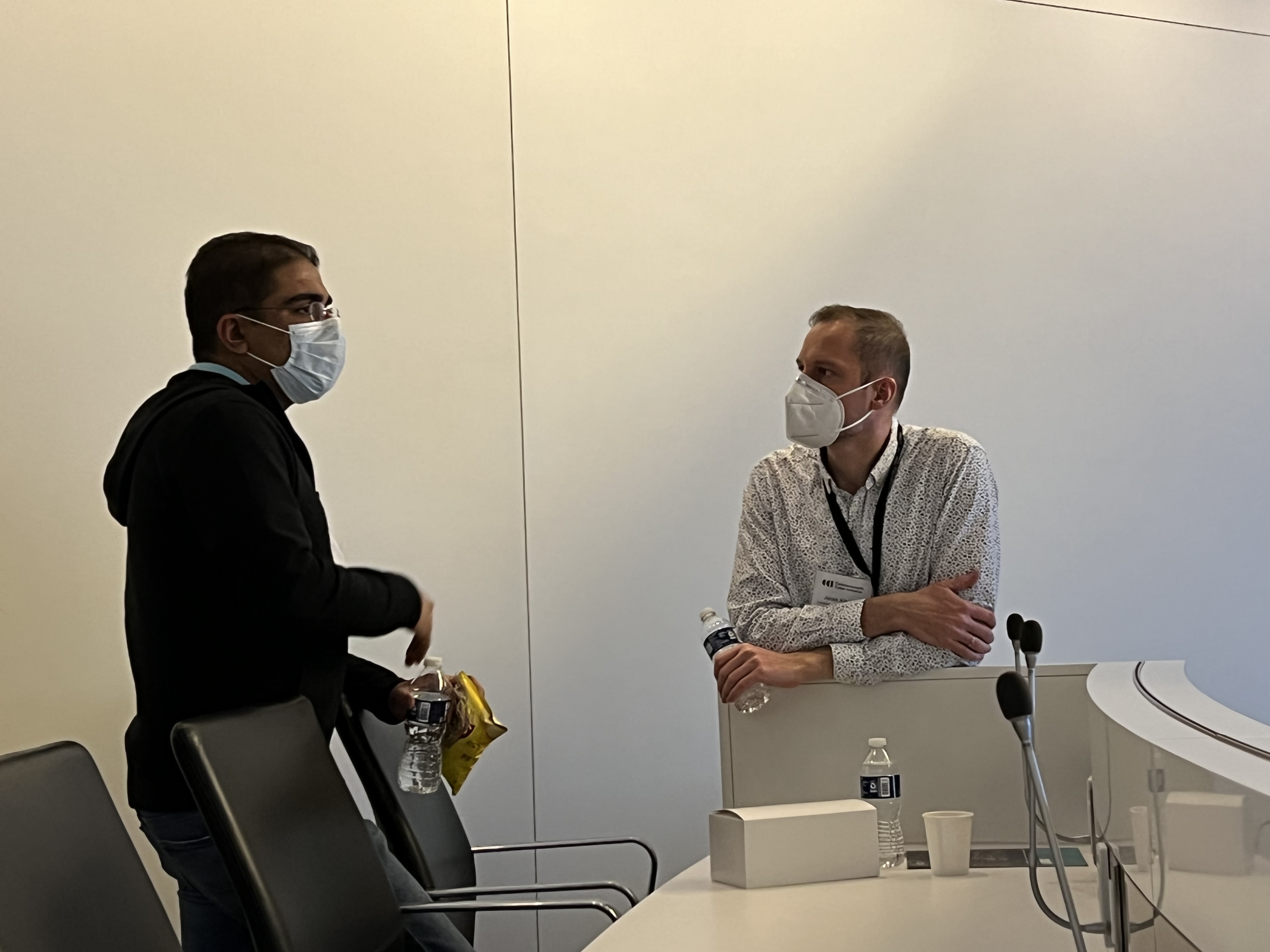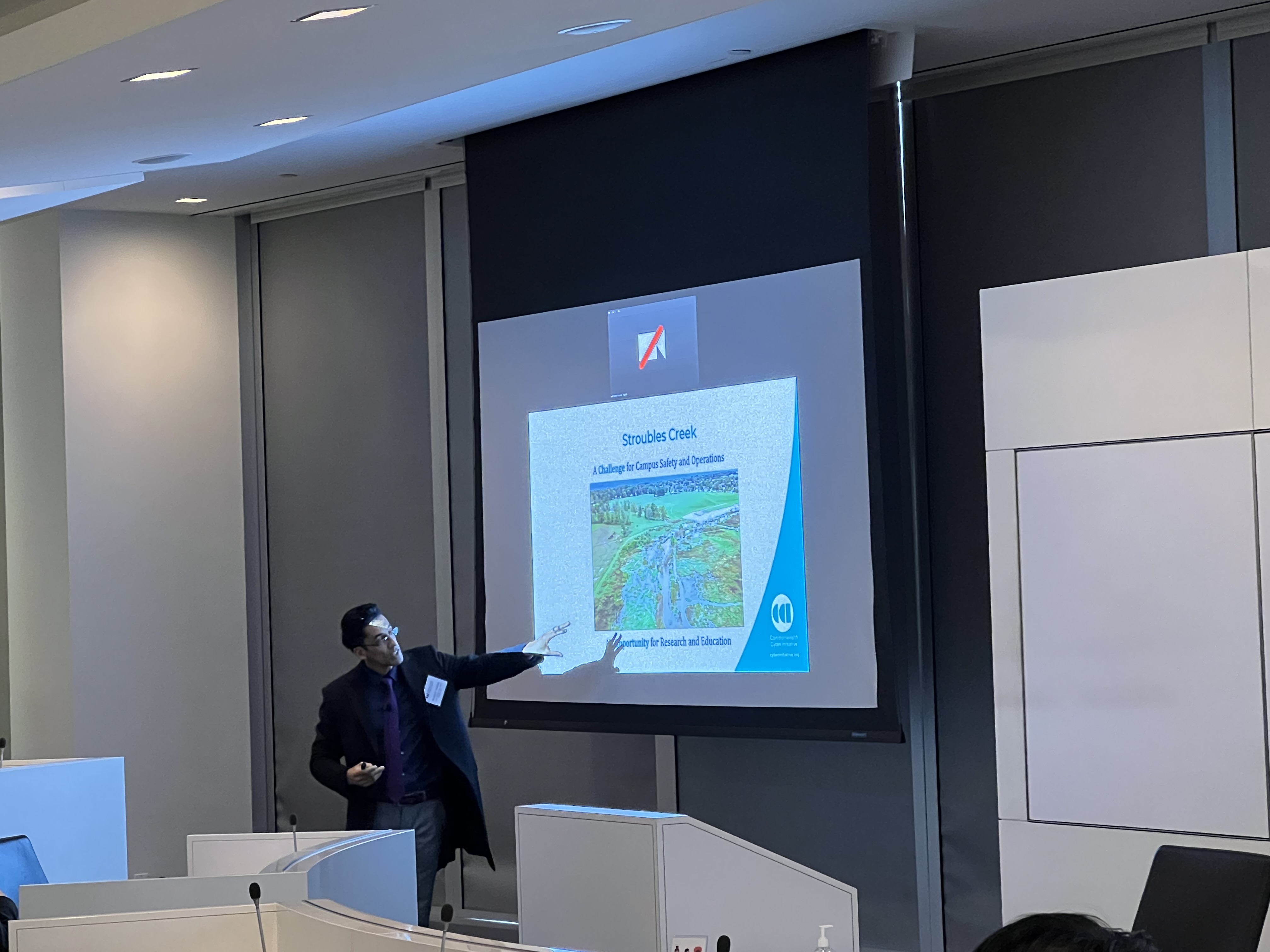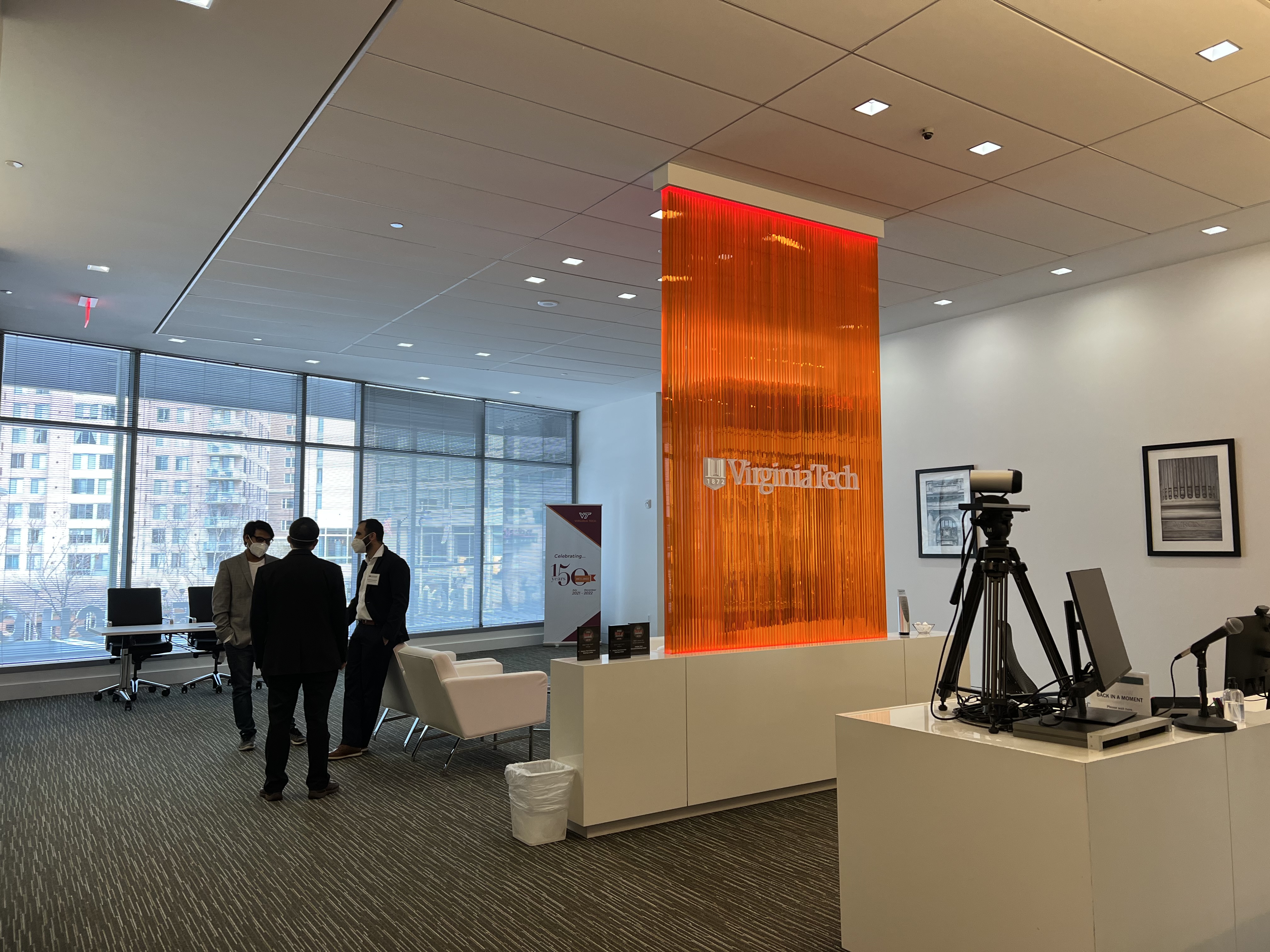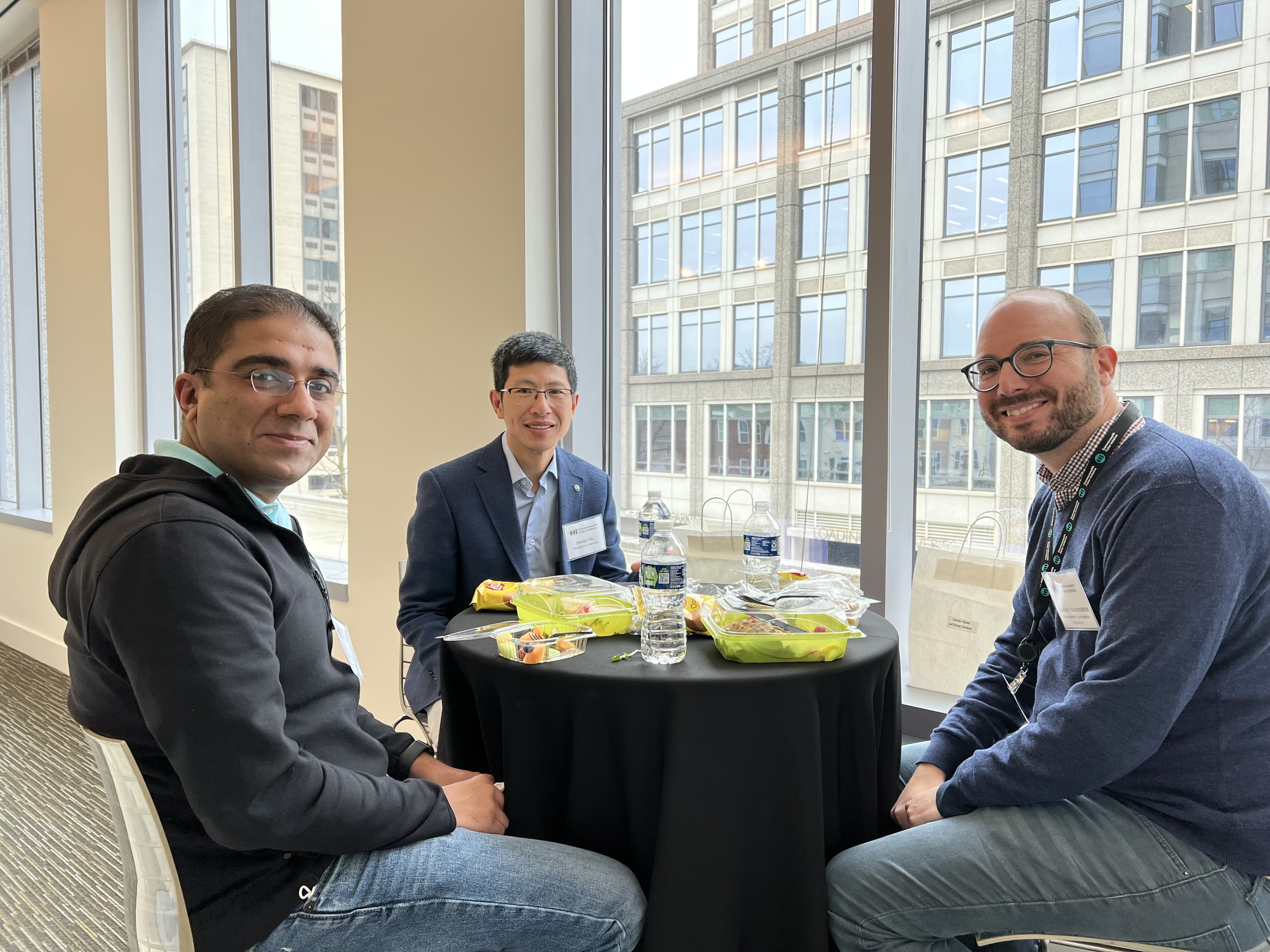CCI researchers discuss their Securing NextG projects

Looking ahead to securing NextG
Commonwealth Cyber Initiative NextG experts from George Mason University, Old Dominion University, University of Virginia, Virginia Commonwealth University, and Virginia Tech met at the Virginia Tech Research Center in Arlington, Virginia on March 1, 2022 to discuss their current research and lay the groundwork for future collaborations and a joint-effort book about securing NextG technology and applications.
“Now is the time to shape the next generation of networks and dictate what new applications and services will be possible in the next decade,” said Luiz DaSilva, CCI executive director. “Each generation of mobile networks has changed how we all live in profound ways, such as being able to record video on our mobile phones. This enabled everyone to document important moments, from a child's first steps, to acts of war, in ways that were not fully foreseen a decade ago.”
Funded by the Commonwealth of Virginia, CCI brings together 41 higher education institutions and more than 300 researchers in Virginia to focus on research, workforce development, and innovation at the intersection of security, autonomous systems, and intelligence.
5G technology is rolling out now and researchers must look ahead to prepare for the next iteration of fast, smart mobile wireless networks. NextG is expected to combine 5G and artificial intelligence.
Technical Program Director of the NextG Alliance and Research Professor of Computer Science at Georgetown University, Eric Burger, commenced the CCI Securing NextG Workshop by sharing the foundational goals, key research initiatives, and leadership priorities of the NextG Alliance.
CCI NextG experts then presented their current research, followed by a roundtable discussion on what the beginning steps of collaboratively authoring a book on NextG would be.
In late 2021, CCI funded nine projects for a total of $900,000 as part of its Securing NextG Call for Proposals. Each funded project focuses on a specific aspect of NextG security. The resulting research from each project is expected to be included in a book about securing NextG along with a set of lecture notes that can be used in a special topics course.
The projects are:
Blockchain-based Deep Learning Management to Enable Smart NextG Wireless Networks
DoS Attack-Resilient Initial Access for mmWave/THz based NextG Communications
Energy-Preserving NextG Cryptography for Power Constrained Devices
HEaaS: Securing Cyber Physical Systems in NextG Using Homomorphic Encryption
Radio Access Network Slicing Security for NextG Networks
Secure Federated Learning for Autonomous Vehicles in the NextG Networks
Securing Non-Terrestrial Networks in NextG
Securing Smart Microgrid with DERs in NextG
Securing Softwarization and Disaggregation in NextG: Call to Disaggregate Trust Management
CCI plans to coordinate more workshops and gatherings focused on NextG technology collaborative initiatives. There is “incredible depth and breadth of research expertise in Virginia on NextG technologies,” DaSilva noted.
“The challenges in NextG are diverse and require combined expertise from experts in communications technology and in the vertical industries that are directly affected, such as smart transportation or the smart electricity grid,” DaSilva said. “Workshops like this allow researchers to exchange ideas and build relationships.”







